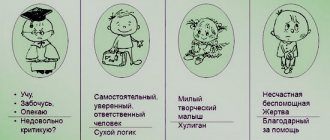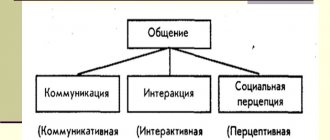Deduction is a method of thinking, the consequence of which is a logical conclusion, where a particular conclusion is deduced from a general one.
“From just one drop of water, a person who knows how to think logically can deduce the existence of the Atlantic Ocean or Niagara Falls, even if he has not seen either one or the other,” this is how the most famous literary detective reasoned. Taking into account small details invisible to other people, he built impeccable logical conclusions using the method of deduction. It was thanks to Sherlock Holmes that the whole world learned what deduction is. In his reasoning, the great detective always started from the general picture - the whole picture of the crime with the alleged criminals, and moved to specific moments - he considered each individual, everyone who could commit the crime, studied the motives, behavior, evidence.
This amazing Conan Doyle hero could guess from the soil particles on his shoes which part of the country a person came from. He also distinguished one hundred and forty types of tobacco ash. Sherlock Holmes was interested in absolutely everything and had extensive knowledge in all areas.
What is the essence of deductive logic
The deductive method begins with a hypothesis that a person believes to be true a priori, and then he must test it through observations. Books on philosophy and psychology define this concept as an inference built on the principle from the general to the particular according to the laws of logic.
Unlike other types of logical reasoning, deduction derives a new idea from others, leading to a specific conclusion applicable to a given situation.
The deductive method allows our thinking to be more specific and effective.
The bottom line is that deduction is based on deducing the particular on the basis of general premises. In other words, this is reasoning based on confirmed, generally accepted and generally known general data, which leads to a logical factual conclusion.
The deductive method is successfully used in mathematics, physics, scientific philosophy and economics. Doctors and lawyers also need to use deductive reasoning skills, but they are useful for any profession. Even for writers working on books, the ability to understand characters and draw conclusions based on empirical knowledge is important.
Deductive logic is a philosophical concept, it has been known since the time of Aristotle, but it began to be intensively developed only in the nineteenth century, when developing mathematical logic gave impetus to the development of the doctrine of the deductive method. Aristotle understood deductive logic as evidence with syllogisms: reasoning with two premises and one conclusion. Rene Descartes also emphasized the high cognitive or cognitive function of deduction. In his works, the scientist contrasted it with intuition. In his opinion, intuition directly reveals the truth, and deduction comprehends this truth indirectly, that is, through additional reasoning.
In everyday reasoning, deduction is extremely rarely used in the form of a syllogism or two premises and one conclusion. Most often, only one message is indicated, and the second message, as well-known and accepted by everyone, is omitted. The conclusion is also not always formulated explicitly. The logical connection between premises and conclusions is expressed by the words “here”, “therefore”, “therefore”, “therefore”.
How to develop deduction?
Deduction is slow thinking that is based on the conscious formation of estimates and conclusions. It was used by the same Sherlock Holmes. We often evaluate events or people using quick thinking, which reacts instantly and often makes us make wrong decisions.
You can acquire the skills of slow thinking if you constantly train it. To do this you need:
To solve problems
These can be problems in physics, mathematics, chemistry, because in the process of intellectual activity, slow thinking is trained. True, you will have to restore the half-forgotten school knowledge of these subjects, and if someone from school days still has a dislike for the exact sciences and various problems, you can use books with puzzles, specially selected for the development of logical thinking. Poker and chess also contribute to its development.
Expand your horizons
Deep knowledge in various fields of culture, science, art, etc., as well as a broad outlook, will allow you to become a comprehensively developed person who will build your conclusions based on knowledge and experience, and not on guesswork. Encyclopedias, dictionaries, reference books, books and films, and travel will provide an invaluable service here.
Be meticulous
You can take up the study of one subject or fact, but do it carefully and comprehensively. Such a fact or object must evoke an emotional response and interest, only then will there be a result
For example, when reading a book or watching a movie, you need to pay attention to various details in the appearance and behavior of the characters in order to try to predict the further course of events. Such experiments are best carried out with books or films of the detective genre.
Develop flexibility of thinking
Having solved a task or problem in one way, you should try to find other solutions, looking at them from a different angle or from a different point of view. To choose the best option, you should listen to the opinions of other people and consider their versions. Your experience and knowledge plus the experience and knowledge of other people, the presence of several options will help you make the only correct conclusion.
Be observant
When talking with other people, you should not only listen, but also look: note their gestures, facial expressions, timbre of voice, intonation. In this way, it will be possible to recognize the person’s intentions and understand how truthful, friendly and sincere he is.
You can develop your powers of observation by looking at strangers on the street and mentally guessing where they work, where they go, their marital status, habits and character. (Of course, this should be done discreetly - it’s unlikely that anyone will like being looked at.) By observing what kind of hands a person has, complexion, hairstyle, shoes, bag, etc., one can guess what kind of habits he has , preferences, what he does, although he himself will not utter a word.
6
Develop voluntary and involuntary attention. This is necessary in order not to lose attention to important details, to interpret them correctly and not to be distracted by extraneous objects
Involuntary attention is a kind of peripheral vision. To train it, you need to observe familiar objects in an unusual environment. For example, under different lighting or sound background
This is necessary in order not to lose attention to important details, to interpret them correctly and not to be distracted by extraneous objects
Involuntary attention is a kind of peripheral vision. To train it, you need to observe familiar objects in an unusual environment.
For example, with different lighting or sound background.
Voluntary attention is the ability to focus on one object without being distracted by anything. It is known that a person usually maintains attention on one object for no more than 20 minutes.
Sherlock Holmes, for example, was helped to concentrate by solitude, a pipe and playing the violin.
Combine deduction and induction
For example, a patient is admitted to the hospital with a diagnosis of a stomach ulcer. To confirm it, the doctor looks to see if all the symptoms characteristic of this disease are present, and then confirms or denies the diagnosis. And vice versa: a person comes to the clinic complaining of stomach pain, heartburn, lack of appetite, etc. - and the doctor, putting all the symptoms together, makes a diagnosis.
These simple examples once again prove that to successfully use different methods of thinking, you need to have considerable knowledge and experience.
Timoshenko Elena, BBF.RU
Examples of using the method
A person who engages in full deductive reasoning is likely to be mistaken for a pedant. Indeed, when reasoning using the following syllogism as an example, such conclusions may be too artificial.
First part: “All Russian officers carefully preserve military traditions.” Second: “All keepers of military traditions are patriots.” Finally, the conclusion: “Some patriots are Russian officers.”
Another example: “Platinum is a metal, all metals conduct electricity, which means platinum is electrically conductive.”
Quote from a joke about Sherlock Holmes: “The cabman greets Conan Doyle’s hero, saying that he is glad to see him after Constantinople and Milan. To Holmes’ surprise, the cab driver explains that he learned this information from the tags on the luggage.” And this is an example of using the deductive method.
Model that limits cognition
Induction in philosophy is the deliberate simplification of complex structures to create an understandable picture of the world. When we observe different phenomena, we generalize them. From this we draw conclusions about the connections between phenomena and put them together into a single picture. It allows us to make choices and set priorities, to determine what is important to us and what is not. But if we lose control over the situation and begin to replace facts with our own opinion about them, then we will inevitably begin to adjust everything we see to suit ourselves. Thus, the presence of induction alone limits cognition. After all, as a rule, it is incomplete. Therefore, almost all universal generalizations made with its help imply the possibility of exceptions.
Examples of deductive logic in Conan Doyle's novel and McGuigan's Sherlock Holmes series
What deduction is in the artistic interpretation of Paul McGuigan becomes clear in the following examples. A quote that embodies the deductive method from the series: “This man has the bearing of a former military man. His face is tanned, but this is not his skin tone, since his wrists are not so dark. The face is tired, as if after a serious illness. He holds his hand motionless, most likely he was once wounded in it.” Here Benedict Cumberbatch uses the method of inference from the general to the specific.
Often deductive conclusions are so limited that they can only be guessed at. It can be difficult to restore deduction in full, indicating two premises and a conclusion, as well as logical connections between them.
Quote from detective Conan Doyle: “Because I have been using deductive logic for so long, conclusions arise in my head so quickly that I do not even notice intermediate conclusions or relationships between two positions.”
Deduction and induction: how to avoid false conclusions
When you wander along logical paths, it’s easy to take a wrong turn. In deduction, if a general statement is false, then the conclusions from it will be false. In induction, insufficient evidence produces an erroneous assumption. Just because one apple is wormy doesn't mean all the others are.
Imagine a girl who avoids relationships with the opposite sex due to a bad experience. She thinks like this:
- Inductively obtaining an unreliable conclusion. Sasha cheated on me, Seryozha beat me, Kolya drank all the money away;
- Sasha, Seryozha and Kolya are men;
- all men are assholes.
- all men are goats;
The problem is that the conclusion “all men are assholes” is based on an incomplete sample. Sasha, Seryozha and Kolya are not all men in the world.
An example of a failed deduction:
What does deductive logic give in life?
Deduction will be useful in everyday life, business, and work. The secret of many people who have achieved outstanding success in various fields of activity lies in the ability to use logic and analyze any actions, calculating their outcome.
When studying any subject, the deductive thinking approach will allow you to consider the object of study more carefully and from all sides; at work, you will be able to make the right decisions and calculate efficiency; and in everyday life - to better navigate in building relationships with other people. Therefore, deduction can improve quality of life when used correctly.
The incredible interest shown in deductive reasoning in various fields of scientific activity is absolutely understandable. After all, deduction allows you to obtain new laws and axioms from an existing fact, event, empirical knowledge, moreover, exclusively through theoretical means, without applying it experimentally, solely through observations. Deduction provides a complete guarantee that the facts obtained as a result of a logical approach and operation will be reliable and true.
Speaking about the importance of the logical deductive operation, we should not forget about the inductive method of thinking and justifying new facts. Almost all general phenomena and conclusions, including axioms, theorems and scientific laws, appear as a result of induction, that is, the movement of scientific thought from the particular to the general. Thus, inductive reasoning is the basis of our knowledge. True, this approach in itself does not guarantee the usefulness of the acquired knowledge, but the inductive method raises new assumptions and connects them with knowledge established empirically. Experience in this case is the source and basis of all our scientific ideas about the world.
Deductive argumentation is a powerful means of cognition, used to obtain new facts and knowledge. Together with induction, deduction is a tool for understanding the world.
How to develop?
Developing deductive reasoning requires some effort. However, they are not so complex as to throw off the desire to become a person with a well-developed instinct for everything that happens. Once you master some skills, you will see the world begin to change around you. So, here are the simplest methods that will help you cope with the task.
Don't miss the details. If you study any material, try to consider each argument carefully. If you are studying, for example, biology, then do not just read the text, but also consider each of its points separately. Draw parallels and take notes. Try to give an example from life.
Show interest in everything that surrounds you
If you are walking down the street, pay attention to people's behavior. Perhaps some of them will walk with a sad look
Don’t miss the moment - try to imagine a situation that made the person feel sad. If he looks bad, then we can assume that his girlfriend left him, or there are troubles at work.
Newspaper articles can also provide food for thought. First, learn to remember the events described in the source, and then try to analyze it. Perhaps the information that you will consider so carefully will be useful to you for planning your future activities.
- In order to think correctly, you need to develop flexibility of thinking. If you are interested in resolving any matter that may turn in one direction or another, then try to find a benefit for yourself. You need to structure your activities in such a way as to make a profit in any case. To complete such a task, you will have to review many options and choose the best one.
- Observe other people's gestures and facial expressions. Know that such data can say a lot both about the person himself and about his behavior. If, for example, your interlocutor is deceiving you, he will stammer and blink frequently. When you notice such actions, try to imagine what the truth that your opponent is trying to hide from you might actually look like.
- Think globally. All people have life moments that are connected to each other with the help of certain details. Try to find this connection and get to the bottom of the truth.
- Be curious. Do not ignore any interesting information, even if it does not concern you. Is it really not interesting to consider this or that situation in more detail? It seems that the fact that you are, as it were, aloof from extraneous events and at the same time experiencing them is of particular interest. At this time, processes will occur in your head that will involuntarily contribute to the development of deduction methods in your mind.








